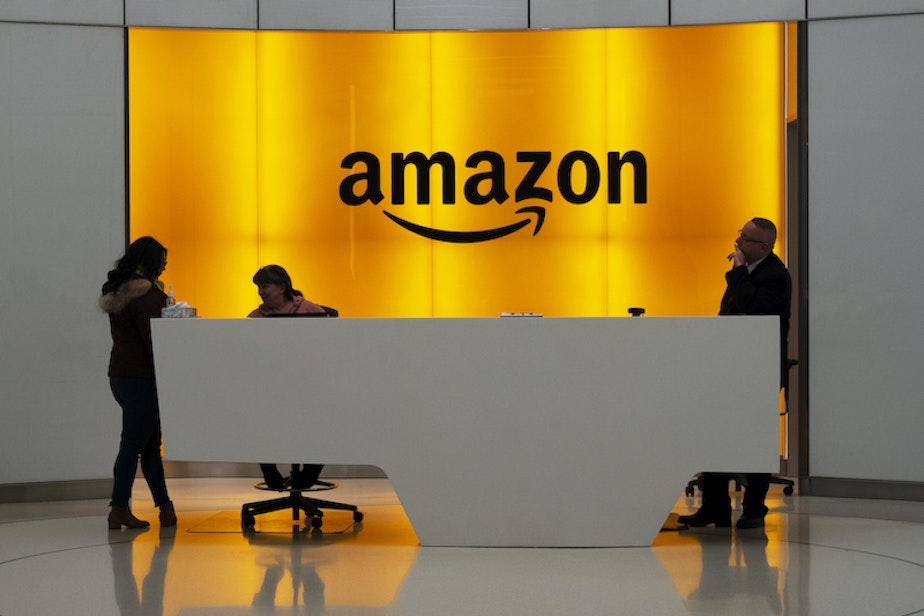Seattle debates whether to expand big business tax to balance city's budget

Seattle’s business community is bristling at a proposal to expand taxes that target large, wealthy companies in the city. It’s one of several ideas that came out of a workgroup of stakeholders tasked with exploring ways to close an impending budget gap.
One option: expanding the so-called JumpStart tax passed by the City Council in 2020.
Business groups say there are a number of other reforms the city could make to balance the budget before expanding taxes. Progressives, on the other hand, point to Seattle’s booming population and growing crises — like homelessness and addiction — as reasons more revenue sources are needed.
In its current form, JumpStart taxes Seattle companies with payroll expenses over $8 million a year who have employees earning more than $174,000 per year. The idea is to tax well-resourced companies that pay high salaries — namely, Amazon.
RELATED: Should Seattle consider a high-pay CEO tax? That’s one option to fill the city’s budget gap
Changing those thresholds is one option floated by the workgroup to close an estimated $221 million revenue shortfall projected for 2025 and beyond.
JumpStart is already generating more revenue than expected, enough to cover the projected budget deficit if the City Council chose to use the funds that way. The Council has restricted JumpStart revenue to affordable housing projects and other priorities that were earmarked when the tax passed.
Sponsored
Business leaders say it would be irresponsible for the City Council to expand taxes without reining in spending and exploring alternative revenue sources.
“City leaders should do everything in their power every day to generate economic activity, especially downtown as it continues to recover,” said Seattle Metropolitan Chamber of Commerce CEO Rachel Smith in an interview with KUOW.
Smith sat on the work group that generated ideas to deal with the revenue shortfall.
“We have been encouraging the city to just do a really good scrubbed budget process where they look at all expenditures against all revenues, including those that are restricted, and clearly align articulated plans to make progress against them,” she said. “I think we need to see that they can do all that before there's any discussion of new revenue.”
Seattle City Councilmember and JumpStart champion Teresa Mosqueda said that criticism is disingenuous, during a meeting Thursday.
Sponsored
“People have asked, ‘Why are we adding additional staffing? Is the city growing? Are we being thoughtful about where positions are being added?’ And then at the same time saying we need more investments in police, in homeless services, and in housing,” Mosqueda said.




